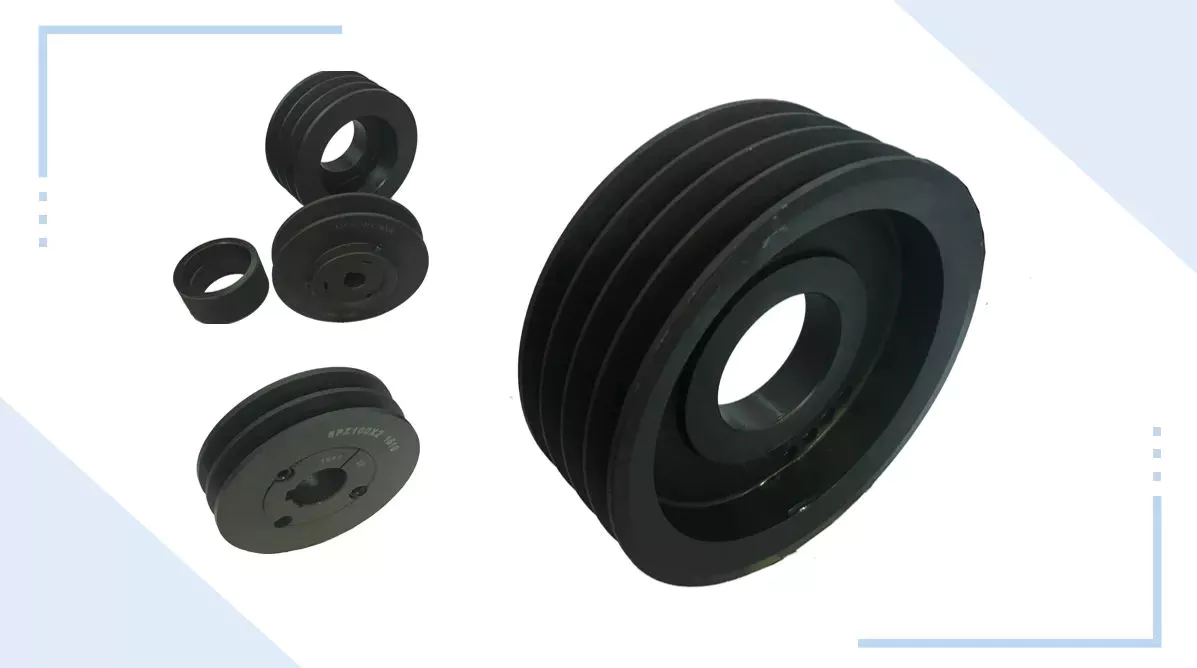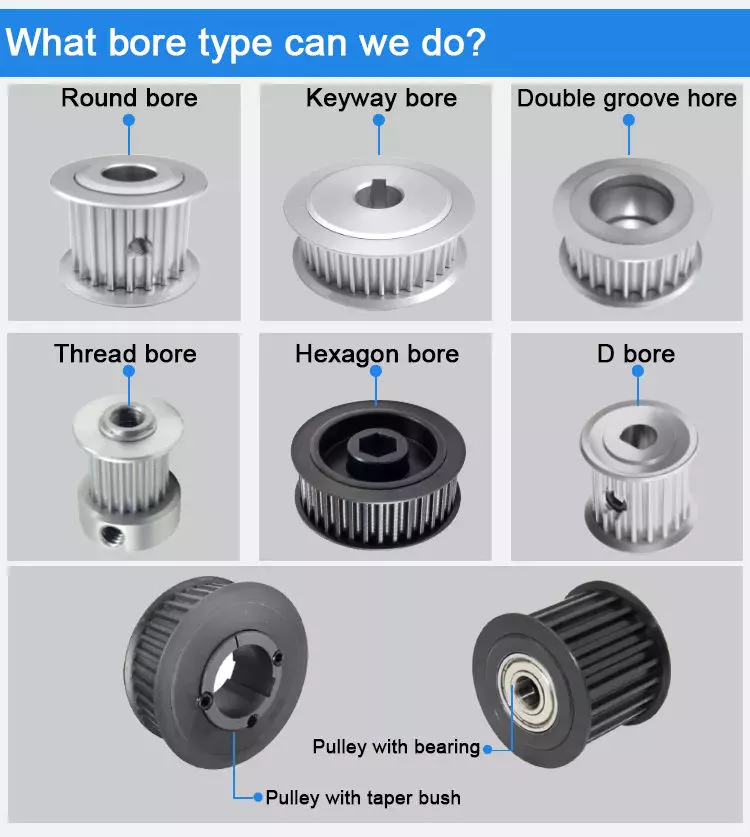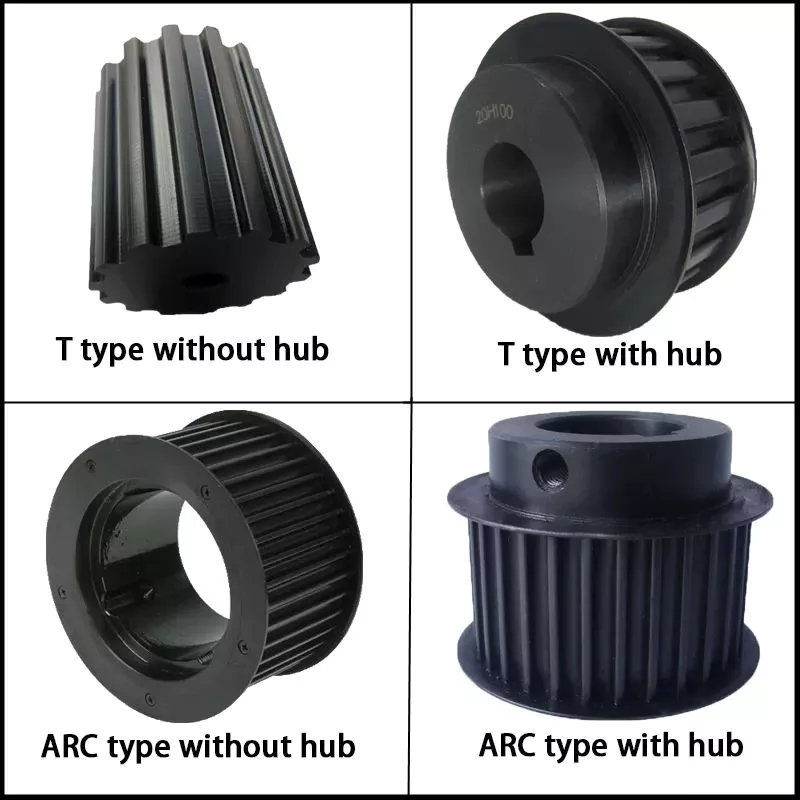Opis produktu
Nazwa produktu: Koło pasowe ceramiczne z kołnierzem plastikowym
| Miejsce pochodzenia: | HangZhou Chiny |
| Nazwa marki: | ZTF |
| Tworzywo: | 99% AL2O3 Ceramika, Pokrywa plastikowa lub Pokrywa z tlenku glinu |
| Aplikacja: | Przewód Xihu (Jezioro Zachodnie) Dis. |
| Polski: | Dobry stopień polski Ra0,2 |
| Łożysko: | Łożysko szybkoobrotowe |
| Twardość: | > HRA89 |
| Gęstość objętościowa: | >3,88 |
| Kolor: | Czarny i różowy |
| Metoda formowania: | NISKIE CIŚNIENIE WSTRZYKIWANIA |
| Minimalna ilość zamówienia: | 100 szt. |
| Szczegóły opakowania: | Karton z pianką |
| Czas dostawy: | 3 dni |
| Warunki płatności: | Przelew bankowy, Western Union, Money Gram, Paypal |
| Możliwość dostawy: | 5 000 000 sztuk miesięcznie |
Szczegółowy opis produktu:
Plastic Flanged Ceramic Wire guide pulley is commonly used component when wire passing is required, it can be used in coil winding machine. cable machine and the textile machinery as well. The porcelain ring is mounted on the bearing. Coil winding wire guide pulley(wire roller) will rotate by the thread and wire passing on the surface of the ring. Thus the sliding friction has been converted to the static friction. But at the start and stop, in order to overcome the inertia. there will be a partial sliding friction. The surface polish degree of the porcelain ring reaches Ra0.2;the beating during rotation is under 0.15.We select the 99% AL2O3 as the material with the hardness of HRA88 and the density of 3.85.. Two nylon side walls have been put to the both side of the ceramic ring and the bearing, coil winding wire guide pulley (wire roller) combines 1 wire roller
| Nr modelu | A | B | C | D | mi | Łożysko NIE | Waga(G) | |
| HCR001 | -B03 | 20 | 15 | 3 | 4.8 | 3 | 623 | 3 |
| HCR002 | 28.4 | 20 | 6.4 | 4 | 7 | |||
| -B04 | 4 | 4*10 | ||||||
| -B05 | 5 | 5*10 | ||||||
| HCR003 | -B03 | 30.4 | 15 | 3 | 10 | 3 | 623 | 7 |
| HCR004 | -B04 | 40 | 20 | 4 | 15 | 3 | 694 | 12 |
| -B05 | 5 | 685 | ||||||
| -B07 | 7 | 677 | ||||||
| HCR045 | -B05 | 45 | 30 | 5 | 10 | 6 | 635 | 20 |
| -B06 | 6 | 626 | ||||||
| -B07 | 7 | 607 | ||||||
| -B08 | 8 | 698 | ||||||
| HCR005 | -B05 | 55 | 30 | 5 | 10 | 6 | 635 | 25 |
| -B06 | 6 | 626 | ||||||
| -B07 | 7 | 607 | ||||||
| -B08 | 8 | 698 | ||||||
| HCR006 | -B07 | 60 | 40 | 7 | 13 | 6 | 627 | 40 |
| -B08 | 8 | 608 | ||||||
| -B10 | 10 | 6900 | ||||||
| -B12 | 12 | 6901 | ||||||
| HCR007 | -B05 | 60 | 30 | 5 | 18 | 6 | 635 | 35 |
| -B06 | 6 | 626 | ||||||
| -B07 | 7 | 607 | ||||||
| -B08 | 8 | 698 | ||||||
| HCR008 | -B10 | 80 | 50 | 10 | 15 | 9 | 6200 | 95 |
| -B12 | 12 | 6001 | ||||||
| HCR009 | -B07 | 80 | 40 | 7 | 25 | 6 | 627 | 60 |
| -B08 | 8 | 608 | ||||||
| HCR571 | -B10 | 100 | 50 | 10 | 30 | 9 | 6200 | 120 |
Dlaczego my:
- 1000 milionów dolarów sprzedaży rocznie;
- Doskonała jakość i konkurencyjna cena;
- Szerokie, profesjonalne doświadczenie eksportowe na całym świecie;
- Dobrze wyszkolona i doświadczona kadra odpowie na wszystkie Państwa pytania profesjonalnie, w dowolnym języku;
- Oferowany jest dobry serwis posprzedażowy.
- Kultura
Kultura:
Trzymamy się zasady kultury Zrównoważonego Rozwoju i Sześciu Wysokich Standardów: zarządzanie na wysokim szczeblu, wysoka wydajność, wysoko wykwalifikowana kadra, wysokie umiejętności, wysokiej jakości produkty i szybki rozwój sprzedaży. Najlepszy projekt obejmuje uwzględnienie środowiska. Dlatego jesteśmy zobowiązani do upewnienia się, że nasze procesy, produkty i ludzie przestrzegają bezpiecznych i przyjaznych dla środowiska praktyk. Z drugiej strony wolimy dostarczać naszym klientom najnowsze, najmodniejsze, wysokiej jakości i najzdrowsze produkty.
Praca:
Produkty ZHENGTAIFENG METAL PRODUCT LIMITED charakteryzują się pełnym systemem obsługi przedsprzedażnej, sprzedażowej i posprzedażowej, a także zapewniają klientom szczegółowe zarządzanie i obsługę w zakresie kanałów dystrybucji. Ponadto dystrybutorom oferowane jest profesjonalne i systematyczne doradztwo.
Usługa dodatkowa:
Posiadamy licencję eksportową, aby pomagać naszym klientom w obsłudze procedur eksportowych. Mamy nasz zespół, który kontroluje jakość, organizuje wysyłkę, łączy kontenery (łączy różne rodzaje przedmiotów w jednym kontenerze z naszej fabryki do drugiego). Ponieważ zawsze dbamy o Twoje myślenie, będziemy Twoim profesjonalnym partnerem w pozyskiwaniu odpowiednich produktów w Chinach.
Sugestia:
Prosimy o sprawdzenie przesyłki po otrzymaniu towaru. W razie jakichkolwiek problemów prosimy o kontakt z nami tak szybko, jak to możliwe.
Skontaktuj się z nami:
Więcej produktów jest dostępnych w ZHENGTAIFENG. Wszystkie są w konkurencyjnej cenie i dobrej jakości, po prostu przejdź na stronę naszej firmy, aby zobaczyć szczegóły.
Jeśli znajdziesz lub nie znajdziesz produktów, których potrzebujesz, nie wahaj się i daj nam znać.
Często zadawane pytania:
| 1.P:Czy jesteś fabryką czy firmą handlową? |
| A: Jesteśmy profesjonalnym producentem. Zapraszamy do odwiedzenia nas, odbierzemy Cię z lotniska GuangZhou lub lotniska HangZhou. |
| 2.P: Gdzie znajduje się Wasza fabryka? |
| A: Nasza fabryka znajduje się w HangZhou, w prowincji ZheJiang, obok HangZhou. Serdecznie zapraszamy krajowych i zagranicznych klientów do odwiedzenia nas! |
| 3.P:Jak mogę otrzymać próbkę, aby sprawdzić jakość produktu? |
| A: Większość próbek jest bezpłatna, z wyjątkiem produktów specjalnych. Nowi klienci muszą zapłacić kurierowi. |
| 4.P:Jakie są warunki płatności? |
| A: Płatność z góry lub miesiąc po wysyłce |
| 5.P: Kiedy możecie dostarczyć towar? |
| A: Jeśli stan magazynowy jest dostępny, możemy dostarczyć go w ciągu 2 dni. Jeśli nie, to będzie to 5-7 dni roboczych od otrzymania depozytu. |
| 6.P:Czy Państwa firma akceptuje produkcję OEM lub ODM? |
| A: Tak, mamy doświadczenie w obsłudze OEM i ODM, wystarczy, że wyślesz nam szczegółowe wymagania. |
/* March 10, 2571 17:59:20 */!function(){function s(e,r){var a,o={};try{e&&e.split(“,”).forEach(function(e,t){e&&(a=e.match(/(.*?):(.*)$/))&&1
| Orzecznictwo: | CE, ISO |
|---|---|
| Rozmiary kół pasowych: | Hcr001 |
| Proces produkcyjny: | Odlew |
| Próbki: |
US$ 1.5/Piece
1 sztuka (minimalne zamówienie) | Zamów próbkę |
|---|
| Personalizacja: |
Dostępny
| Spersonalizowane żądanie |
|---|
.shipping-cost-tm .tm-status-off{tło: brak;wypełnienie:0;kolor: #1470cc}
|
Koszt wysyłki:
Szacowany koszt przesyłki za jednostkę. |
o kosztach wysyłki i szacowanym czasie dostawy. |
|---|
| Metoda płatności: |
|
|---|---|
|
Płatność początkowa Pełna płatność |
| Waluta: | US$ |
|---|
| Zwroty i zwroty pieniędzy: | O zwrot pieniędzy możesz ubiegać się w ciągu 30 dni od otrzymania produktów. |
|---|

What are the applications of pulleys in the automotive industry?
Pulleys have various applications in the automotive industry, contributing to the operation of different systems within vehicles. Here are some common applications of pulleys in the automotive industry:
1. Engine Systems: Pulleys are extensively used in the engine systems of vehicles. The crankshaft pulley, also known as the harmonic balancer, is connected to the engine crankshaft and drives various engine accessories through the use of belts. These accessories may include the alternator, power steering pump, water pump, air conditioning compressor, and more. The rotation of the crankshaft pulley powers these accessories, allowing them to perform their respective functions.
2. Serpentine Belt Systems: Modern vehicles often use a serpentine belt system, which is a single, long belt that drives multiple engine accessories simultaneously. The serpentine belt travels around various pulleys, including the crankshaft pulley, tensioner pulley, idler pulleys, and accessory pulleys. These pulleys guide and maintain the tension of the serpentine belt, ensuring efficient power transfer to the engine accessories.
3. Timing Belt/Chain Systems: Timing belts or chains are used in internal combustion engines to synchronize the opening and closing of engine valves with the movement of the pistons. Pulleys known as timing belt pulleys or timing sprockets are mounted on the camshafts and crankshafts, and they work together with the timing belt or chain to ensure precise valve timing. These pulleys play a crucial role in maintaining engine performance and preventing valve interference.
4. Supercharger/Blower Systems: Pulleys are integral components in supercharger or blower systems used in performance vehicles. These systems compress the incoming air to increase engine power and performance. The pulley on the supercharger or blower is driven by the engine crankshaft pulley through a belt or a drive system. By changing the size of the pulley, the speed and boost level of the supercharger or blower can be adjusted.
5. Tensioners and Idler Pulleys: Tensioners and idler pulleys are crucial in maintaining proper belt tension and alignment in automotive systems. Tensioner pulleys are designed to apply tension to belts, ensuring they remain properly seated on the pulleys throughout their operation. Idler pulleys guide the belt and help maintain its alignment. These pulleys contribute to the smooth and reliable operation of various belt-driven systems, reducing slippage and preventing premature belt wear.
6. Accessories and Auxiliary Systems: Pulleys are also employed in various auxiliary systems and accessories in vehicles. These may include systems such as power windows, windshield wipers, cooling fans, and more. Pulleys in these systems facilitate the transfer of rotational motion from motors to mechanical components, enabling the desired functionality.
Overall, pulleys play significant roles in the automotive industry by driving engine accessories, maintaining belt tension, synchronizing engine timing, enhancing performance, and supporting various auxiliary systems. Their proper functioning is crucial for the reliable and efficient operation of automotive systems and components.

How do pulleys contribute to the functioning of bicycles and motorcycles?
Pulleys play important roles in the functioning of both bicycles and motorcycles, aiding in power transmission, speed control, and overall mechanical efficiency. Here's how pulleys contribute to the operation of these vehicles:
1. Bicycles:
– Derailleur System: In most modern bicycles, pulleys are used in the derailleur system. The derailleur is responsible for shifting the bicycle chain between different gears on the front and rear sprockets. Pulleys, often referred to as jockey wheels, are positioned in the derailleur to guide and tension the chain as it moves between gears. They ensure smooth and precise shifting, allowing the rider to adapt to various terrains and maintain an optimal pedaling cadence.
– Belt Drive Systems: Some bicycles use a belt drive instead of a traditional chain drive. Belt drives employ a pulley system that consists of a front pulley attached to the pedal crank and a rear pulley attached to the rear wheel hub. The belt is wrapped around these pulleys, transferring power from the rider's pedaling motion to propel the bicycle forward. Pulleys in belt drive systems enable efficient power transfer, reduce maintenance needs, and provide a quieter and cleaner alternative to chain drives.
2. Motorcycles:
– Clutch System: Pulleys, known as clutch pulleys, are utilized in motorcycle clutch systems. The clutch connects the engine to the transmission and allows the rider to engage or disengage power transmission to the rear wheel. When the clutch lever is pulled, the clutch pulley separates the engine's rotational motion from the transmission, disengaging power transfer. Releasing the clutch lever brings the pulley back into contact, engaging power transmission and enabling the motorcycle to move.
– Variable Transmission Systems: Some motorcycles employ pulleys in variable transmission systems, such as continuously variable transmissions (CVT). CVTs use a pair of pulleys connected by a belt or chain. By changing the diameter of the pulleys, the CVT adjusts the gear ratio continuously, providing seamless and efficient power delivery across a wide range of speeds. Pulleys in variable transmission systems contribute to smooth acceleration, improved fuel efficiency, and enhanced riding comfort.
– Drive Belt Systems: Pulleys are also utilized in motorcycles equipped with belt drive systems. Similar to bicycles, these systems consist of a front pulley connected to the engine's crankshaft and a rear pulley connected to the rear wheel. The belt runs around these pulleys, transferring power from the engine to the rear wheel. Belt drive systems offer advantages such as reduced maintenance, quieter operation, and smoother power delivery compared to traditional chain drives.
Overall, pulleys are integral components in bicycles and motorcycles, contributing to smooth gear shifting, efficient power transmission, and improved overall performance. Whether in derailleur systems, belt drive systems, clutch systems, or variable transmission systems, pulleys play a vital role in enhancing the functionality and ride experience of these vehicles.

What materials are typically used to manufacture pulleys?
Pulleys are manufactured using a variety of materials, depending on the specific application and requirements. Here are some of the materials that are typically used to manufacture pulleys:
1. Metal Alloys: Metal alloys such as steel and cast iron are commonly used to manufacture pulleys. Steel pulleys offer excellent strength, durability, and resistance to wear and corrosion. Cast iron pulleys are known for their high strength and resistance to impact and shock loads. Metal alloys are preferred in heavy-duty applications where strength and durability are critical.
2. Aluminum: Aluminum is widely used in pulley manufacturing due to its lightweight nature and corrosion resistance. Aluminum pulleys are commonly used in applications that require reduced weight, such as automotive engines, aircraft components, and light-duty machinery. They offer good strength-to-weight ratio and are suitable for applications where weight reduction is a priority.
3. Plastic: Various types of plastics, including nylon, polyurethane, and high-density polyethylene (HDPE), are used to manufacture pulleys. Plastic pulleys are lightweight, corrosion-resistant, and offer good resistance to wear and abrasion. They are commonly used in applications where noise reduction, chemical resistance, or non-conductive properties are required. Plastic pulleys are frequently used in conveyor systems, packaging machinery, and small-scale equipment.
4. Composite Materials: Composite materials, such as fiberglass-reinforced plastic (FRP) and carbon fiber-reinforced polymer (CFRP), are utilized in the manufacturing of pulleys. These materials offer high strength-to-weight ratios, excellent resistance to corrosion, and good fatigue resistance. Composite pulleys are commonly used in industries such as aerospace, marine, and sports equipment, where lightweight components with exceptional strength are required.
5. Ceramics: In certain specialized applications, pulleys made of ceramics like aluminum oxide (alumina) or silicon nitride are used. Ceramic pulleys offer exceptional hardness, high temperature resistance, and excellent wear resistance. They are primarily used in industries such as semiconductor manufacturing, where extreme precision, chemical resistance, and resistance to high temperatures are crucial.
It's important to note that the choice of material for pulley manufacturing depends on factors such as load capacity, operating conditions, environmental factors, and cost considerations. Manufacturers select materials that provide the necessary properties to meet the specific requirements of the application while considering factors such as strength, durability, weight, and cost.


redaktor przez CX
2023-12-28
